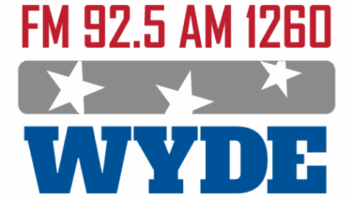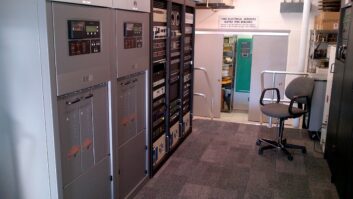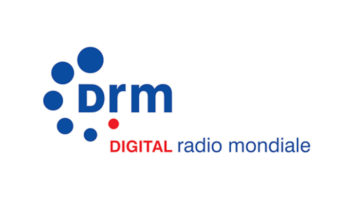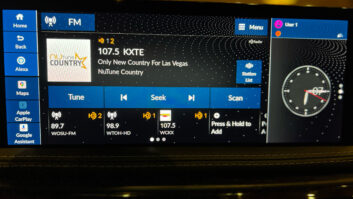The safety of incoming radio station mail is something most managers probably hadn’t given much thought until recent weeks. How times have changed. NAB reports that some of its member radio stations have received suspicious letters in recent weeks. What should you be looking for? NAB President Eddie Fritts listed these warning signs, echoing advice from U.S. postal authorities. Watch for mail with:
- no return address
- handwritten or poorly typed address
- incorrect title
- title but no name
- misspellings of common words
- sender name unfamiliar to you
- “personal” or “confidential” markings
- a strange odor or stain
- postmark different from return address
- unusual shape
- weight not distributed evenly
- weight that shifts as you handle the package
- too much tape or string, or excessive postage – usually too many stamps
The NAB also recommends that concerned stations review the information on what to do if you receive a suspicious package that U.S. Sen. Bill Frist posted on his Web site (www.senate.gov/~frist). Before he was elected, Frist was a surgeon. RW reprints Sen. Frist’s list below.– If you receive an unopened letter or letter that appears empty:
1. Place envelope in a plastic bag or glassine envelope2. Wash hands with soap and water3. Notify the FBI, state police and your supervisor
– If you receive an envelope with powder that spills out onto surface:
- Do not clean powder up – keep others away
- Wash hands with soap and water
- Do not brush off your clothes – remove clothing and place in plastic bag as soon as possible
- Notify the FBI, state police and your supervisor
- Shower with soap and water; do not use bleach or other disinfectant
- Put on fresh clothing
- Make list of all people who had contact with the powder and give to local public health authorities. Those individuals may be instructed to watch for fever or other symptoms over the next couple of days.
– If you receive a package marked with a threatening message:
- Do not open
- Leave it and evacuate the room
- Keep others from entering
- Notify the FBI, state police and your supervisor
– If there is aerosolization or a small explosion:
- Leave the room immediately.
- Close the door, or section off the area to prevent others from entering
- Turn off local fans or ventilations units in the area – shut down air handling system in the building, if possible
- Notify the FBI, state police, and your supervisor
- Remain on premises until responders arrive
- Make list of all people who were in the building at the time and give to local public health authorities. Those individuals may be instructed to watch for fever or other symptoms over the next couple of days.
Prepare Your Station for Disasters There are precautions stations take routinely such as testing back-up generators and maintaining door locks and security lights around transmitter and studio facilities. In these unusual times, broadcasters might wish to prepare for station evacuation, too. Al Kenyon, vice president of technology for Clear Channel, and Gary Kline, Cumulus Media’s corporate engineer, offered tips for managing the extreme emergencies such as acts of God and terrorist attacks.
- Establish a primary and secondary meeting point away from the station in case of evacuation. Make sure all employees know these locations.
- A current list of employees’ cell phone, personal e-mail address, home address and home phone should be printed out weekly from a station database for top managers. Only top managersshould carry this list at all times. Do not post a copy of the full list in the control rooms, which would do little good in the event of an evacuation.
- The control rooms should have the following phone numbers posted at all times: all local sheriffs, fire department, FAA for tower light problems and home and cell phone numbers for key personnel only.
- Provide extra training for operators who will be at the station in off-hours to read remote equipment.
- Obvious flashing lights should show at a glance conditions such as doors open, smoke, loss of air signals, etc.
- Panic buttons can be tied into station alarm system for operators in the control room or other key areas of the station. The button can automatically send a pre-recorded phone message to “911” and key station personnel.
- Test your automatic dial-out equipment now at the transmitter to be sure that it is calling the current list of emergency people. Events that should trigger calls include power failure, the presence of water, plate current surges, severe or sudden temperature changes, unauthorized entry and problems with nitrogen pressure sensors.
Control Access at Your Station Exactly who is walking around in your radio station? Are you sure? Al Kenyon, vice president of technology for Clear Channel, and Gary Kline, Cumulus Media’s corporate engineer, offered some suggestions for controlling the flow of people at a time when broadcasters are more sensitive to security issues.
- Control levels of access for each employee. Not everyone needs to go everywhere.
- Install a card reader that personnel must swipe or at least possess in proximity of a sensor, not only to enter your buildings, but also to go from one area to another.
- Check the logs from these access devices to determine if there are any suspicious patterns.
- When an employee’s status changes (i.e., he/she is fired or leaves), make sure the person’s access and codes are changed in a timely fashion.
- Non-station people visiting any area should be required to enter an eight-digit code on a keypad consisting of the last four digits of their social security number and the last four digits of their phone number. These numbers should be logged at the receptionist’s desk.
- In the case of people attempting to gain entry to a station after hours, a simple code word or phrase will separate people who should and shouldn’t be buzzed in. Example: (name) on a (current day) i.e., “Ken on a Monday.”







